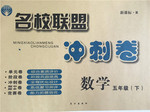题目内容
C
I was riding along the road when I heard someone shouting behind me. It was a young shepherd (牧羊人). He was running across a field, and pointing at something.
I looked and saw two wolves running across the field. One was fully grown, the other was a cub. The cub had on his back a lamb (羔羊) which had just been killed, and he had the leg in his mouth. The old wolf was running behind.
As soon as I saw the wolves, I joined the shepherd and started in pursuit (追击), setting up a shout.
When they heard, some peasants started out also in pursuit, with their dogs.
As soon as the old wolf caught sight of the dogs and the men, he ran to the young one, snatched (攫取) the lamb from him, threw it over his back, and both wolves increased their pace and were soon lost from view.
Then the shepherd began to tell me how it happened. The big wolf has sprung (跳跃) out from the valley, seized the lamb, killed it and carried it off. The old wolf allowed the young wolf to carry the lamb, but kept running a short distance behind.
But as soon as there was danger, the old wolf stopped giving the lesson, and seized the lamb himself.
58. What is a cub?
A. It’s an old wolf. B. It’s a young wolf. C. It’s a strong wolf. D. It’s a big wolf.
59. The old wolf seized the lamb for himself because __________.
A. the cub would not carry it any longer B. the cub was too tired
C. there was danger D. the cub would not learn
60. What is the passage about?
A. How a young wolf carried a lamb.
B. How the wolves escaped.
C. How some peasants tried to catch the wolf.
D. How an old wolf taught its cub..
58---60 BCD
【解析】略

 阳光考场单元测试卷系列答案
阳光考场单元测试卷系列答案 名校联盟冲刺卷系列答案
名校联盟冲刺卷系列答案 名校提分一卷通系列答案
名校提分一卷通系列答案I am Sergey Brin! I was born in Moscow. In 1979,when I was 5, my family immigrated to California, USA . I remember that on my 9th birthday, I got my first computer “Commodore 64”.
Later I graduated with honors in the University of Maryland in Mathematics and IT. The main field of my science research was the technologies used to collect data from unsystematic sources as well as large quantities of texts and science data. I was the author of dozens of articles in leading American academic magazines.
The greatest event in my life happened when in 1998 I was preparing for the defense(论文答辩) of my Doctor’s degree in the Stanford University. There the fate made me meet Larry Page—a young computer genius. Larry belonged to the intellectual society. I and Larry quickly became friends when we were working together.
We were searching day and night on the Internet. We were finding a lot of information but with the feeling we still couldn’t find enough of what we were looking for . Naturally the idea for a search engine that would allow specific information to be found in the endless pool of data was born like it came to us. It wasn’t our plans but we gave up the education at the university. You know the next part ,maybe—we managed to turn an ordinary garage in Peplo Park, California , the USA into our first office, in which Google was born. With excitement we typed the name of the thing which we created with love on September 14th,1998—www.Google.com. Now after those years we bought this garage. As a symbol it will always remind us that everything is possible.
【小题1】Which of the following would be the best title for this passage?
| A.The Birth of Google | B.The Founder of Google |
| C.The Importance of Cooperation | D.The Great Contribution to the Internet |
| A.was born from a rich merchant family |
| B.was once a student in the Stanford University |
| C.published some academic articles when young |
| D.was Brin’s important partner in starting Google |
| A.Because they loved working with the Internet so much. |
| B.Because they wanted to make a lot of money through the Internet |
| C.Because they hoped to make it easy to find specific information online |
| D.Because they believed everything is possible. |
a. My family moved from Russia to the USA
b. I met Larry Page
c. I was given a computer as a present on my 9th birthday.
d. google was born in an ordinary garage in California.
e. I graduated from the university in Mathematics and IT.
| A.a-c-e-b-d | B.c-a-b-e-d | C.a-c-b-d-e | D.c-b-a-e-d |